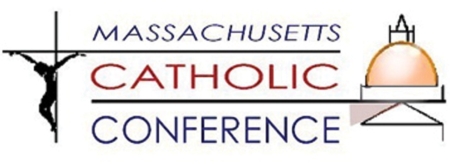Notes from the Hill
Bishops oppose 'Death with Dignity Act'
BOSTON -- On Sept. 7, Attorney General Martha Coakley certified Initiative Petition No. 11-12, a petition in support of the so-called "Massachusetts Death with Dignity Act."
If petition supporters gather enough signatures of registered voters -- and without legislative action -- it will be placed on the Fall 2012 ballot. The Initiative Petition is a first step in Massachusetts toward legalizing physician-assisted suicide, effectively authorizing the killing of human beings prior to their natural death.
The Roman Catholic Bishops of Massachusetts stand firm in the belief that a compassionate society should work to prevent suicide, which is always a terrible tragedy, no matter what form it may take.
The bishops, through the Massachusetts Catholic Conference (MCC), have been monitoring the status of this Initiative Petition as well as the similar legislation that was filed in the House of Representatives earlier this session. They oppose this petition and reaffirm the Catholic Church's consistent message against the ending of life before its natural conclusion.
The bishops reiterated their 1995 statement opposing physician-assisted suicide:
"The Roman Catholic Bishops in Massachusetts are strongly opposed to the legalization of assisted suicide because it is contrary to the good of persons and contrary to the common good of this State. For once a society allows one individual to take the life of another based on their private standards of what constitutes a life worth living, even when there is mutual agreement, there can be no safe or sure way to contain its possible consequences."
With regard to the topic of care for the dying, the basic principles of Catholic teaching are often misunderstood. Because the Church opposes both euthanasia and assisted suicide, it is commonly said that Catholics believe all possible measures should be used to keep individuals alive. This is decidedly not the case.
Individuals and caregivers have a responsibility to preserve human life through care and medical science. However, the responsibility has moral limits. Extraordinary means, which may not alleviate the underlying condition and may excessively burden the patient, are not obligatory. Moral decisions about the extent of care should be made in terms of the possible benefits offered and the burdens that may be imposed, assisted by the medical professional's judgments and a person's sense of what is appropriate.
As recently as June of this year, the U.S. Conference of Catholic Bishops reaffirmed the Church's stance on physician-assisted suicide in an official document titled, "To Live Each Day with Dignity."
In it, the USCCB affirmed that "a society that devalues some people's lives, by hastening and facilitating their deaths, will ultimately lose respect for their other rights and freedoms."
The MCC said that society cannot allow for the possibility that government agencies or insurance companies will have an influence on the decision as to whether or not a person's life is worthy of being sustained.



















